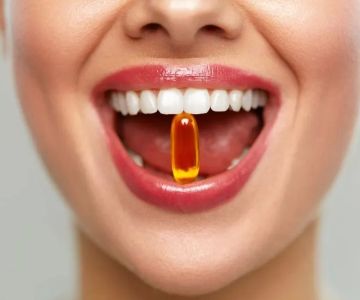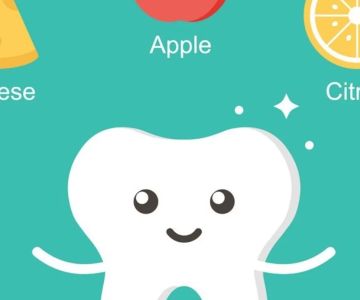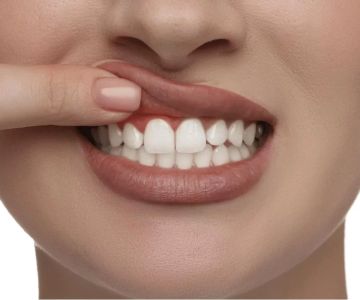Why is a Balanced Diet Important to Oral Health?
Trending Blog Articles
Popular Dental Blog Posts
 Oral Health and Vitamin Deficiency: How Vitamin Deficiencies Affect Your Teeth and Gums
Oral Health and Vitamin Deficiency: How Vitamin Deficiencies Affect Your Teeth and GumsDiscover how vitamin deficiencies can impact your oral health. Learn about the key vitamins that influence your dental care, and how nutrient deficiencies can lead to gum disease and tooth decay.
 How Sugar Causes Tooth Decay: The Role of Sugar in Cavities and Dental Health
How Sugar Causes Tooth Decay: The Role of Sugar in Cavities and Dental HealthDiscover how sugar contributes to tooth decay and cavities. Learn the connection between sugar and dental health, and find out how to prevent tooth decay caused by sugar.
 Maintaining Oral Health with Diet: Essential Foods and Tips for Strong Teeth
Maintaining Oral Health with Diet: Essential Foods and Tips for Strong TeethDiscover the importance of maintaining oral health with diet. Learn about the best foods for strong teeth and how healthy eating can prevent dental issues. Visit Dentistry Toothtruth for expert advice.
 Antioxidant-Rich Foods for Oral Health: Boost Your Smile with These Powerful Nutrients
Antioxidant-Rich Foods for Oral Health: Boost Your Smile with These Powerful NutrientsDiscover how antioxidant-rich foods can improve your oral health. Learn about the best foods for healthy teeth and gums, and how antioxidants protect against dental issues.
 Combat Plaque Naturally: How Diet Reduces Plaque Buildup
Combat Plaque Naturally: How Diet Reduces Plaque BuildupDiscover how your diet can play a key role in reducing plaque buildup and improving your oral health. Learn which foods to eat and avoid for a healthier smile. Visit Dentistry Toothtruth for expert advice.
 Unlocking the Benefits of Sugar-Free Foods for Oral Health
Unlocking the Benefits of Sugar-Free Foods for Oral HealthDiscover how sugar-free foods can enhance your dental health by preventing cavities and promoting cleaner teeth. Learn about the best sugar-free options and their impact on your oral care routine.
Categories
Popular Dental Clinics
 Great Expressions Dental Centers - New City4.0 (362 review)
Great Expressions Dental Centers - New City4.0 (362 review) MapleTree Pediatric Dentistry4.0 (102 review)
MapleTree Pediatric Dentistry4.0 (102 review) Smile For All Family Dental0.0 (0 review)
Smile For All Family Dental0.0 (0 review) Tender Care Family Dentistry4.0 (61 review)
Tender Care Family Dentistry4.0 (61 review) Coventry Family Dental4.0 (247 review)
Coventry Family Dental4.0 (247 review) Rush Family Dental5.0 (161 review)
Rush Family Dental5.0 (161 review) Top Dental Blog Posts
Most Searched Dental Clinics
Hot Blog Topics
 The Importance of Oral Health Education During Pregnancy for a Healthy Pregnancy
The Importance of Oral Health Education During Pregnancy for a Healthy Pregnancy Best Tips for Brushing Your Teeth Properly for Healthy Gums: Essential Techniques for Oral Health
Best Tips for Brushing Your Teeth Properly for Healthy Gums: Essential Techniques for Oral Health Why Skipping Dental Checkups Can Lead to Bigger Oral Health Problems
Why Skipping Dental Checkups Can Lead to Bigger Oral Health Problems Advantages of Porcelain Dental Restorations
Advantages of Porcelain Dental Restorations How Can Diabetes Cause Tooth and Gum Problems? Preventing and Managing Oral Health Issues
How Can Diabetes Cause Tooth and Gum Problems? Preventing and Managing Oral Health Issues Healthy Habits for Promoting Good Oral Health and Hygiene: Tips for a Healthy Smile
Healthy Habits for Promoting Good Oral Health and Hygiene: Tips for a Healthy Smile 